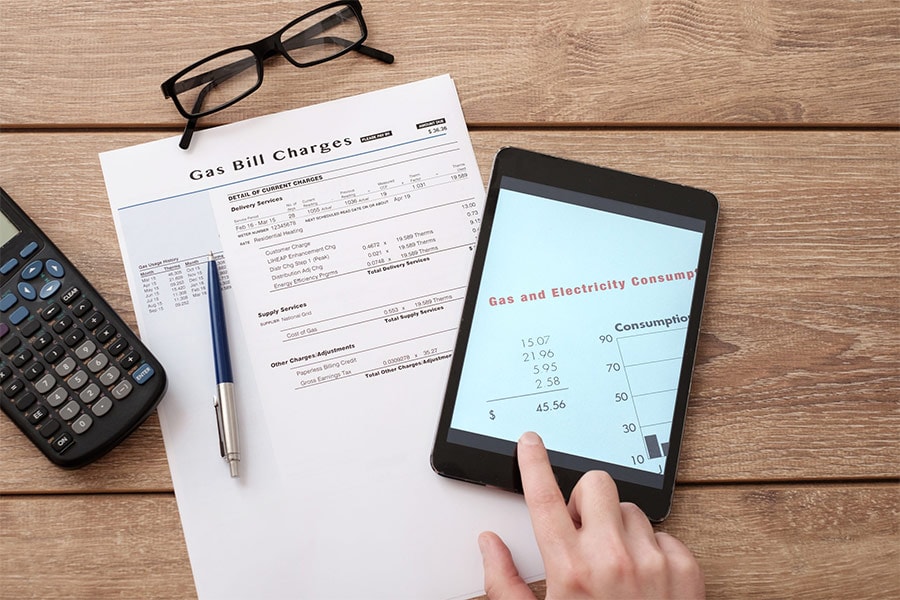Business is booming, and your once small company has grown too large to fit on your kitchen table. If you’re looking to expand your business by renting an office, there are a few things to keep in mind, one of which is setting up an energy contract.
Although the process isn’t dissimilar to when you’re moving house, it’s still important to know how you can get the best utilities deal for your business when moving office.
Moving into new premises: the first hurdle
Every new office, shop or building has an electricity meter, and many will come with a gas meter too. These meters are generally always connected to the power company from the previous tenant.
The major drawback of this is that you’ll immediately be placed on an expensive emergency tariff when you contact the supplier to tell them you’re taking over the premises.
Depending on the circumstances, these tariffs are either classed as ‘deemed rates’ or ‘out of contract rates’. For many utility suppliers, these are typically two or three times the rate of their standard tariffs for small businesses. Therefore, it’s essential that you switch your current electricity tariff and arrange a new agreement straight away.

Setting up an energy contract is one of the first things a business owner should do when moving to a new office
Choosing an energy supplier
Pricing varies by supplier, so it’s wise to get quotes from as many as you can. All small businesses are billed a daily standing charge together with a price per unit of electricity or gas used. Standing charges are 21p per day on average, with electricity consumption typically priced at 12p per unit.
The business energy sector works similarly to the residential market in that you can choose the supplier that provides your gas and electricity. Although the ‘big six’ command over 90% of the market, you can also choose from 29 independent suppliers.
At the end of the day, energy is a commodity product, so you’re best to simply find the cheapest rates on offer. There are no differences between suppliers in terms of the quality of fuel provided. All offer online accounts, UK-based customer service and energy efficiency advice.
Billing and complaint resolution are what set the best utilities suppliers apart from the worst. In the majority of cases, everything runs smoothly on the administration front. However, things can still go wrong, and it’s the way that suppliers deal with problems that ultimately affects how they’re viewed by customers.
Which Magazine rates the performance of the energy companies, and shows how poor customer service tends to reflect in a poor rating. Although these results are based on feedback from regular consumers rather than business customers, small business owners will probably face the same problems with their energy supply, so the ratings are a fair reflection of what they can expect.

Businesses should seek out the lowest energy prices from highly rated suppliers
Getting the right energy deal
Ultimately, you want to secure the best possible price for your electricity and gas. Fortunately, there are a few simple steps that you can follow to ensure you get the best deal for your small business.
- Take meter readings on the day you move in. This ensures that you’re not billed for energy the previous tenant has used.
- Find out who currently supplies the property. If you’re unsure because no bills are available, then there are some quick ways to find out. For electricity, check out Western Power’s supplier search service. Even if you’re not in its area, you’ll be presented with a telephone number of the regional contact for your postcode. For gas, call the National Meter Helpline on 0870 608 1524. Both services will also provide you with your meter numbers if required.
- Search for the best new deal. There are three ways to find the best prices. Bear in mind that you’ll still have gas and electricity supplied while you’re searching for a new deal.
- Use your preferred supplier: You might wish to stay with the supplier that you used at a previous premises – or that supplies your domestic energy – if you’re happy with their price and customer service. If that’s the case, simply give them a call and take out a new contract.
- Use an online comparison service: There are a few good online services that can help take the stress out of searching for the lowest prices, all of which can be found with a simple Google search. Just enter your premises details into a quote form and the website will do the rest. You’ll receive the lowest available online prices for your specific postcode.
- Use an energy broker: There are about 20 excellent energy brokers in the UK, all offering to take on the role of your energy assistant. They’ll find the cheapest contract, set it up for you, and remind you when it’s due for renewal. The pricing is similar among most brokers, although a few have negotiated lower rates with some suppliers
- Agree on your contract: Once you have selected your tariff, it’s just a case of signing a new contract. Some brokers offer electronic signatures, but if this isn’t available, you’ll have to sign a physical copy. Once approved, you’ll switch almost immediately because you’re not in contract.
The types of contract on offer
All small business contracts are fixed in price and duration. These days you can choose from a one-year fixed rate all the way through to five years in some cases. The longer you fix your rates, the higher the price, so consider what length of contract you want to tie yourself to before signing on the dotted line.
Energy contract renewal
When your utilities contract comes to an end, you’ll be offered a new deal. Most renewal offers bake in a high price increase of up to 40%, so either make a calendar note to look for a new tariff about three months before the end of the contract, or use the services of a broker who’ll look after this for you.
About the author
Jason Smith is a blogger and energy expert who has spent over ten years helping businesses increase their energy efficiency. He manages the website Business Electricity Prices, which advises small and medium-sized businesses on reducing their utility bills.






These cookies are set by a range of social media services that we have added to the site to enable you to share our content with your friends and networks. They are capable of tracking your browser across other sites and building up a profile of your interests. This may impact the content and messages you see on other websites you visit.
If you do not allow these cookies you may not be able to use or see these sharing tools.